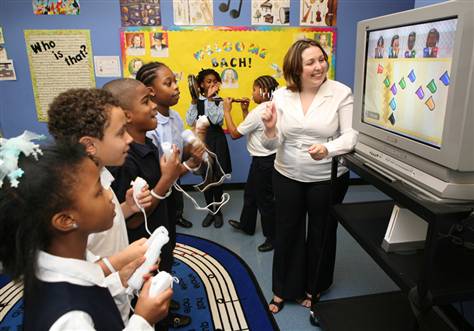Introduction:
Meet Dr. Emily Bennett, an esteemed educational psychologist with a passion for leveraging technology to enhance learning outcomes for American children. With her expertise in child development and educational methodologies, Dr. Bennett sheds light on the profound impact of educational video games on children’s knowledge acquisition and cognitive development.
1. Understanding Educational Video Games

Educational games are not just entertainment; they are powerful tools for learning. Dr. Bennett explains how these games engage children in immersive experiences that promote critical thinking, problem-solving skills, and subject mastery. Unlike traditional rote learning methods, educational games provide dynamic and interactive learning environments tailored to each child’s individual needs.
2. Benefits of Educational Video Games
The benefits of educational games extend far beyond the classroom. From fostering a love for learning to improving academic performance, these games offer numerous advantages for American children. Dr. Bennett explores how educational games enhance motivation, persistence, and collaboration while providing opportunities for hands-on learning and skill development.
3. Strategies for Integrating Educational Video Games
Integrating educational games into the curriculum requires thoughtful planning and implementation. Dr. Bennett shares practical strategies for educators and parents interested in incorporating these games into children’s learning experiences. From selecting high-quality games to aligning gameplay with curriculum objectives, she provides guidance on maximizing the educational value of video games in educational settings.
4. Real-World Impact and Success Stories
The real-world impact of educational games is evident in classrooms across America. Through compelling success stories and case studies, Dr. Bennett illustrates how these games have transformed learning outcomes for children of all ages and abilities. From improved test scores to increased engagement and enthusiasm for learning, these examples highlight the profound impact of educational games on American children’s education.
5. Overcoming Challenges and Misconceptions

Despite their benefits, educational games face challenges and misconceptions. Dr. Bennett addresses common concerns such as screen time limits and skepticism from parents and educators. By providing evidence-based insights and practical solutions. She empowers stakeholders to overcome barriers and embrace the potential of educational games as valuable learning tools.
6. Looking Ahead: The Future of Educational Video Games
As technology continues to evolve, the future of educational games looks promising. Dr. Bennett explores emerging trends such as virtual reality and augmented reality. Which have the potential to further enhance immersive learning experiences. By staying informed and embracing new technologies, educators and parents can ensure that American children have access to the most effective and engaging educational resources available.
Informative Table: Key Points at a Glance
| Key Points | Details |
|---|---|
| Benefits of Educational Video Games | Fosters critical thinking, improves academic performance, etc. |
| Strategies for Integration | Game selection, aligning with curriculum objectives, etc. |
| Real-World Impact and Success Stories | Improved test scores, increased engagement, etc. |
| Overcoming Challenges | Addressing screen time concerns, skepticism, etc. |
| Future of Educational Video Games | Emerging technologies, VR/AR integration, etc. |
Comparative Table: Popular Educational Video Games
| Game Title | Target Age Group | Educational Focus | Platforms |
|---|---|---|---|
| Minecraft Edu | 6-14 | Creativity, Collaboration | PC, Mac, iOS |
| Prodigy Math Game | 6-12 | Math Skills | Web, iOS, Android |
| Osmo Genius Kit | 5-12 | Various Subjects | iPad |
| Duolingo | All Ages | Language Learning | Web, iOS, Android |
Conclusion:
Through this in-depth exploration of educational video games, Dr. Emily Bennett demonstrates their transformative potential in revolutionizing learning for American children. With practical strategies, real-world examples, and a forward-looking perspective, educators and parents are empowered to embrace these games as valuable tools for unlocking knowledge and fostering lifelong learning habits in the next generation.










